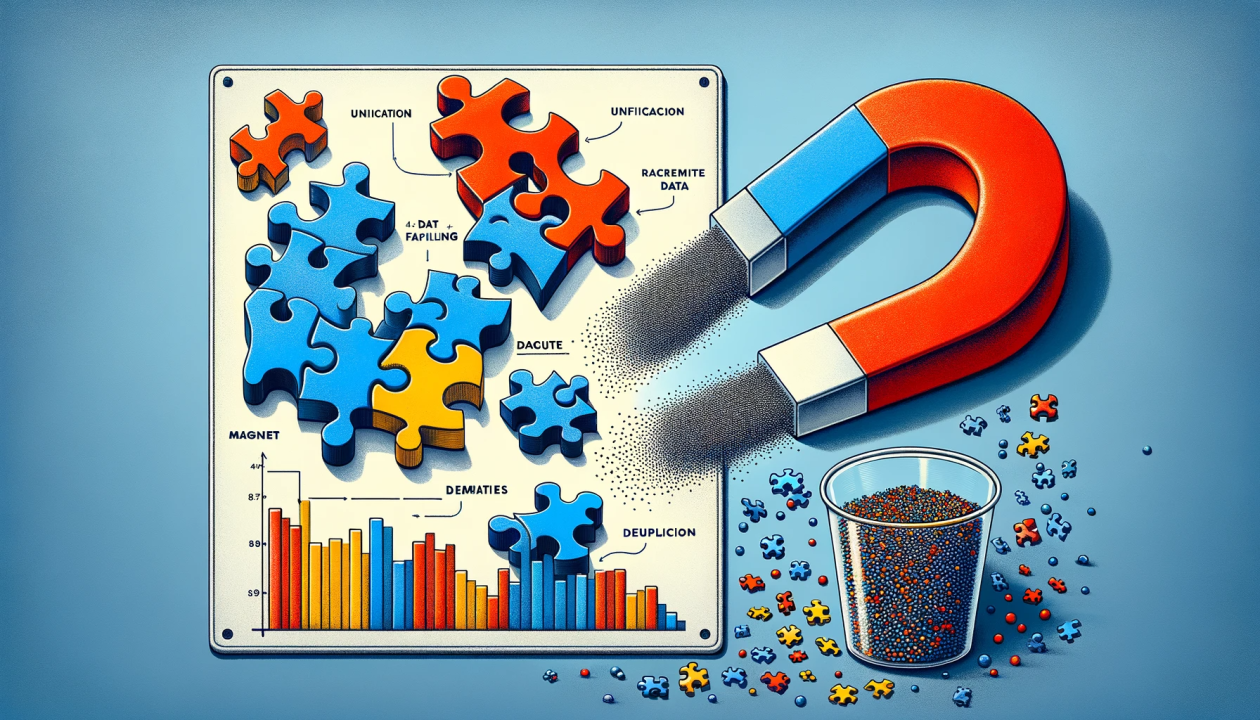Clean Data, Bigger Wins: Why Data Quality Matters in Sales Now and Generative AI’s Future
Published by Bryce Jones on April 27, 2023
Customer expectations are unrecognizable compared to those of the past. Fast, easy and personalized experiences are now the norm, and companies that don’t keep up risk getting left behind. Studies show that nearly 90% of businesses compete primarily on experience, and 73% of customers say that experience is a deciding factor when purchasing.
The good news is that even though customer expectations are evolving, so too are the tools that help you manage them. One new suite of tools that is promising to help is Salesforce’s new Einstein GPT, which leverages generative AI content to create more personalized experiences. However, the main challenge with these tools is that they are only as good as the data you feed into them.
What is Salesforce Einstein GPT?
According to Salesforce, its new Einstein GPT is the “world’s first generative AI CRM technology.” It delivers AI-created content across sales, service, marketing, commerce and more – and does so on a “hyperscale.” The tool aims to transform the customer experience and help your team become more efficient.
But what does that look like in application? Here are a few examples of use cases that Salesforce recently shared.
- Personalizing emails. It can generate personalized emails for your salespeople to send to customers.
- Answering customer service questions. It can create specific responses for your customer service team to answer questions faster.
- Increasing campaign response rates. It can generate targeted content for marketers to increase campaign response rates.
- Creating code for developers. It can create auto-generated code for developers.
The new Salesforce tool is powerful and has the potential to improve personalization at scale, but it doesn’t come without challenges, and the biggest one is this: Learning models are only as good as the data you feed into them.
And here’s the reality: Most companies (77%) report struggling with data quality, and 91% say it’s impacting company performance. With bad data feeding into your AI models, the tools can’t work reliably and accurately, and this creates an uphill battle against one of the largest challenges around CRM adoption: internal resistance.
Building more trust with users
When a person views an AI recommendation in the CRM, the system has only moments to win his or her trust. And if the data feeding into the recommendation isn’t accurate, the recommendation won’t be either. And this is exactly what could happen with powerful tools such as Salesforce’s Einstein GPT if the data that feeds into it isn’t up to date and complete. But again, the challenge is that most companies struggle with data quality issues, and those issues have serious impacts, with or without the use of AI-generated content.
For example, two-thirds of sales leads fail to close due to bad-quality data, and the same research found that 25% of records contain data errors directly impacting sales. So what can you do?
Cleaning up the data that feeds into your generative AI tools enables you to harness the full potential of these technologies to create the personalized experiences that customers expect.
Cleaning up your data
Cleaning data manually isn’t just time-consuming, it’s also practically impossible, especially considering the vast amount of data organizations house. It’s why AI-powered tools designed to clean up data are the solution to harnessing the power of tools such as Salesforce’s Einstein.
This type of tool can help you clean the data, eliminate duplicates, and address incomplete data and quality issues. For example, a tool can detect duplication faster and let your team decide whether a record should remain separate or merged. And that’s critical, considering that sometimes there are good reasons to leave two records that appear the same alone. One such example is when the person in both records is the same, but they hold two positions, at two different companies, both of which you want to target.
An AI tool can also help battle data decay, which is important considering how quickly information decays: roughly 30% annually. The tool can check and enrich your data, ensuring more fields are complete, contacts are associated with the correct accounts and duplicate issues are spotted faster.
Capturing a competitive advantage
The capabilities of AI-generated tools such as Salesforce’s EinsteinGPT have the potential to disrupt how you do business, provide the ability to personalize at scale, and create stronger and more authentic connections with your customers. But using it to its full potential requires that whatever data feeds into the tool is as accurate as possible. When you do this well, internal users trust the tool, adoption is smoother and you can get the results required to capture a competitive market advantage.
Ready to get accurate and reliable data?








